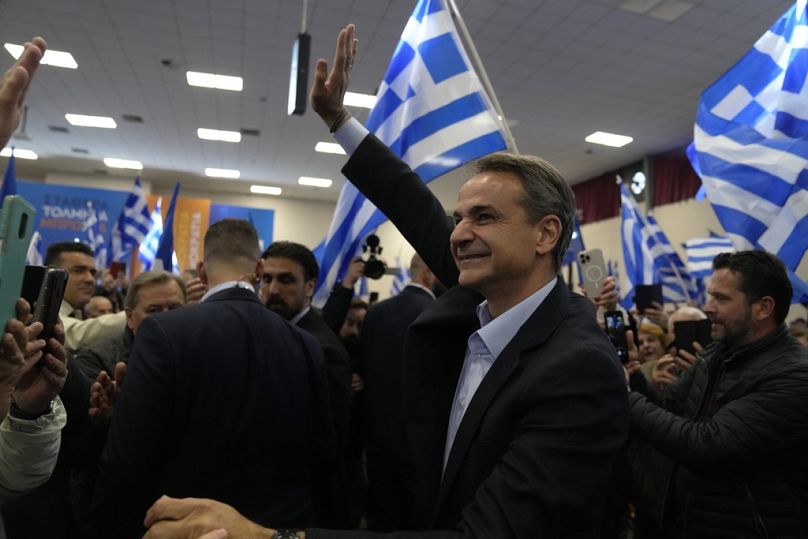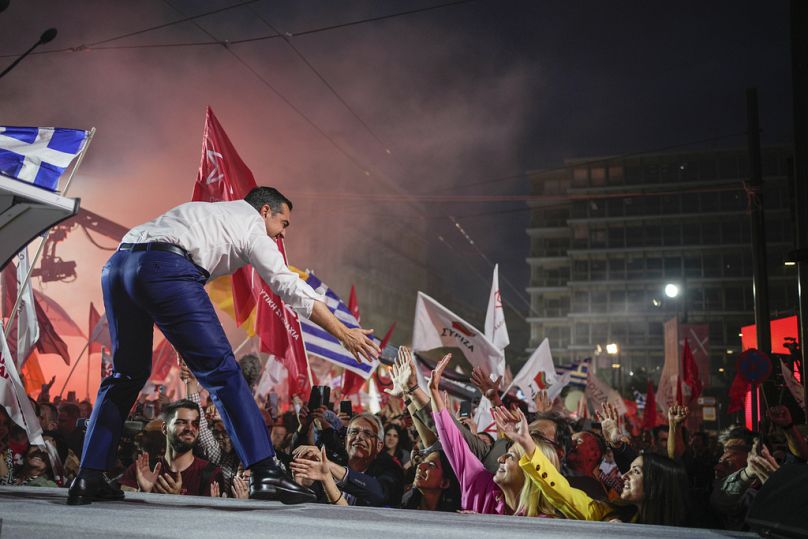Prime Minister Kyriakos Mitsotakis told crowds in Thessaloniki that stability and economic security were at stake in Sunday's vote. Left-wing opposition leader Alexis Tsipras urged progressive parties to be open to coalition negotiations.
Greek Prime Minister Kyriakos Mitsotakis said stability and economic security are at stake as the country prepares to vote in its general election on Sunday.
Giving his penultimate election speech in Thessaloniki on Thursday night, Mitsotakis, from the ruling centre-right New Democracy party, took the chance to hit out at the former prime minister and leader of the left-wing opposition SYRIZA party, Alexis Tsipras.
"Today, he (Tsipras) again cuts €83 billion from the money tree and asks for "justice everywhere". Everywhere except next to him, where he has Nikos Pappas, who was convicted in the Special Court by 13 votes to none.
"Sunday's question is now in front of us: do we want stability or unknown adventures? In short, do we prefer a New Democracy government and Prime Minister Mitsotakis or a SYRIZA government and Prime Minister Tsipras? The choice is now in your hands," Mitsotakis said.
Meanwhile, Tsipras addressed supporters in the capital, Athens. He urged citizens to vote for an end to the Mitsotakis government and called on all progressive parties to be open to negotiations to form a coalition government from Monday.
"Today, we ask Greek people, with honesty and an open heart, not for a second chance to govern, but the first chance to govern with our programme, how we want, and without obligations, without memorandums, without Troika, without Schauble and without all of them that enforced their policies.
"So that's what it means to vote for SYRIZA, and for change: it means pay rises, falling prices, fixing all debts and a just, effective and powerful social state, which will stand by the citizens. That's what it means to vote for SYRIZA."
There are around 9.8 million registered voters, including 440,000 young people, aged 17 to 21, who are eligible to vote for the first time.
Pollsters predict that no party will receive enough support to form a majority government in the first round of voting. Failure to form a coalition government after 21 May would mean a repeat election will be held in early July using an enhanced proportional representation system.













